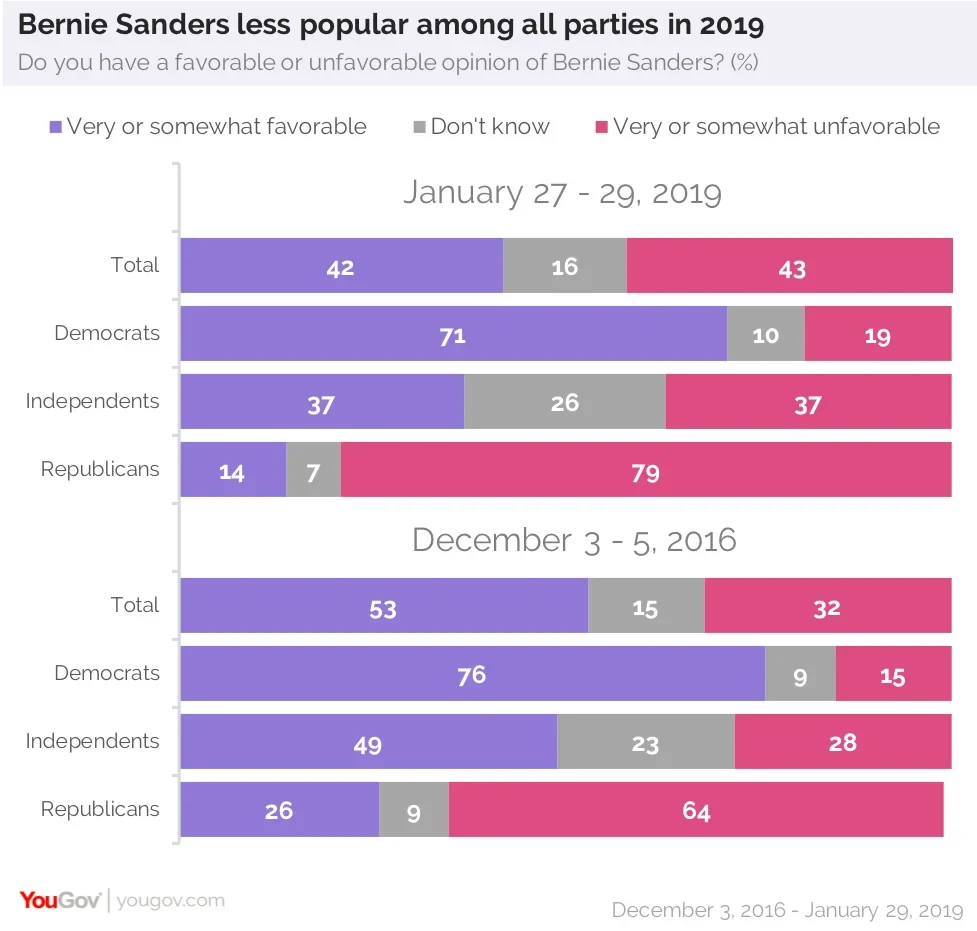47% of Republicans now say it's likely Trump will not win reelection in 2020
Some Democrats are unveiling popular tax plans as they begin challenging President Donald Trump (and each other) in the 2020 presidential race. In a crowded 2020 field, the announced (and one unannounced) Democrats often struggle to register a public opinion, but nearly all are extremely well-recognized by Democrats in the latest Economist/YouGov poll.
The Democratic Party may have expectations for success. President Trump has low overall approval ratings, he is blamed for the shutdown and seen as achieving little from it, and half the public expects him to lose in the 2020 election.
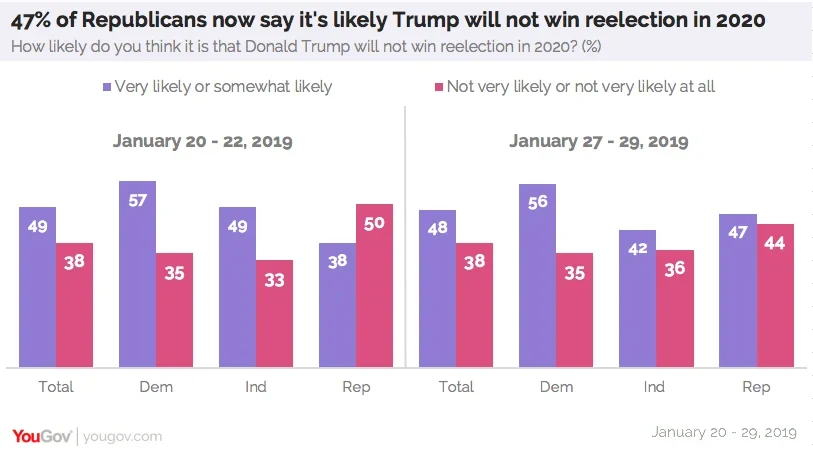
What is particularly notable is that Republicans in this week’s poll are divided evenly on whether or not the President will win re-election. As many Republicans say Mr. Trump is likely to lose as say that he will succeed. The percentage of Republicans who think the President is likely to lose in his bid for a second term increased nine points in the last week.
Mr. Trump is facing problems beyond the shutdown. The GOP President’s tax cut has yet to score with the public. Among the 11% in this week’s poll who say they have already filed, 25% say they paid lower taxes this year, but 21% claim they paid more. Those who are waiting to file are as likely to say they will pay more as to believe they will pay less.
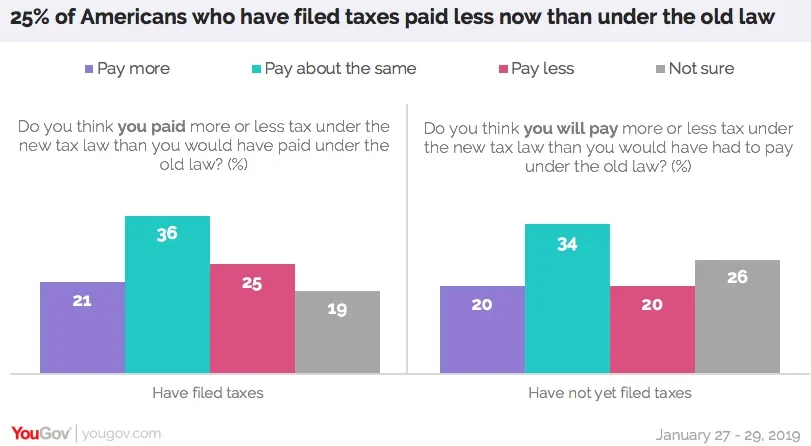
Republicans are the most hopeful, with 35% of those who have not yet filed taxes saying that they anticipate paying less in taxes this year.
This unwillingness to believe the GOP tax cut legislation will benefit Americans may be one reason that two Democratic tax suggestions are quite popular. Alexandria Ocasio-Cortez’s proposal to raise the top marginal tax rate to 70% on incomes above $10 million a year (it is currently 37% on income over $500,000) is popular with most groups, with Republicans being a major exception. The proposal is especially liked by Democrats. Those with family incomes of $100,000 a year are evenly divided. Of course, most in that income group earn far less than $1 million.
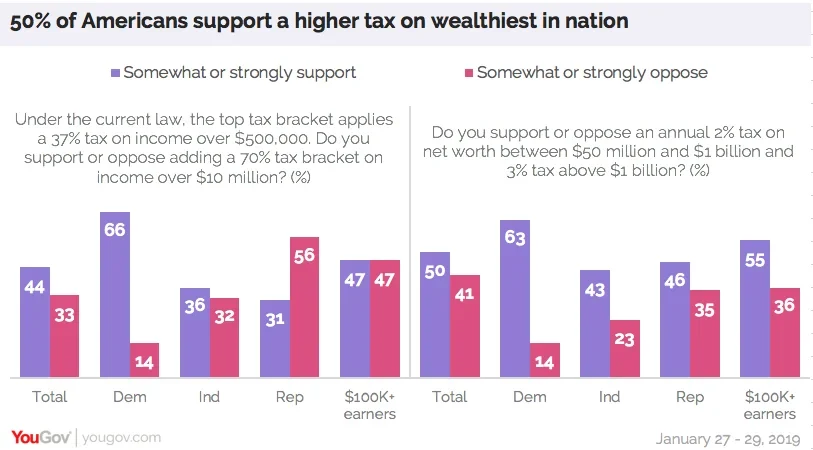
But a proposal by Senator Elizabeth Warren for a tax of 2% on net worth above $50 million and 3% on net worth over $1 billion gets even more support, including from a plurality (46%) of Republicans and a majority (55%) of those with family incomes above $100,000.
As for the announced Democrats, Elizabeth Warren is the best known, but California Senator Kamala Harris, who just recently announced her candidacy, isn’t far behind. New York Senator Kirsten Gillibrand and former Housing and Urban Development Secretary and San Antonio Mayor Julian Castro are known by a majority of Democrats, and they are liked by most who know them. Other candidates, like Hawaii Congresswoman Tulsi Gabbard, are mostly unknown. Gabbard receives more unfavorable evaluations (16%) from Democrats than any of the others who have announced.
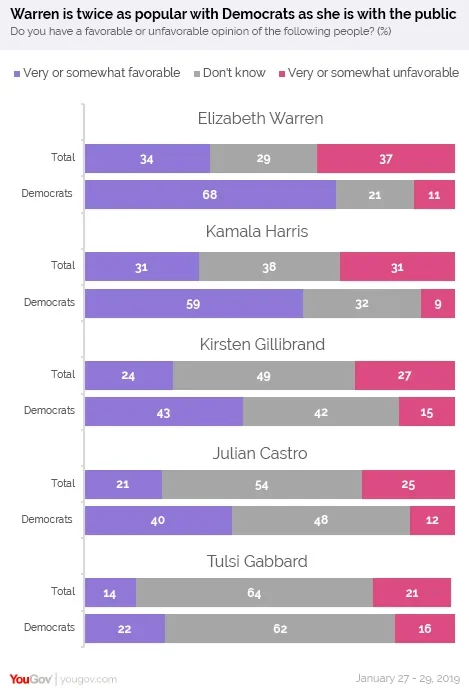
Other prominent Democrats are mulling over whether or not to run. Vermont Senator Bernie Sanders, who challenged Hillary Clinton for the Democratic nomination in 2016, is one of them. He is still very popular with Democrats, with favorable ratings (71%) higher than any of the announced candidates (though Warren is just behind him). But nearly one in five Democrats say they have an unfavorable view of Sanders, and he has slipped somewhat among Democrats since 2016. But what has changed even more is how Sanders is viewed by non-Democrats. In December 2016, a majority of independents liked Sanders. Now independent opinion is evenly divided. Negative ratings of Sanders among Republicans have also risen (79%).
